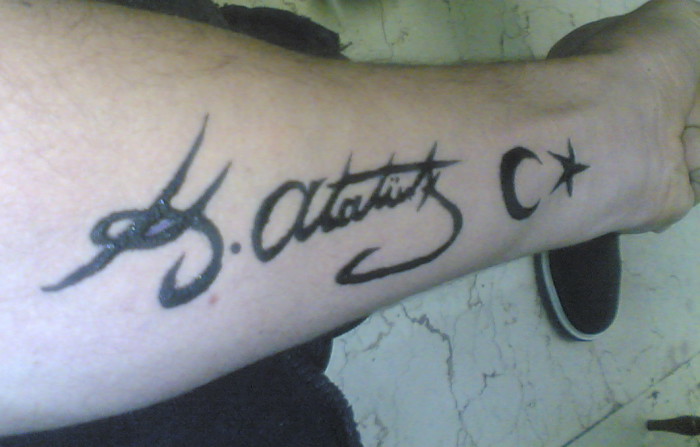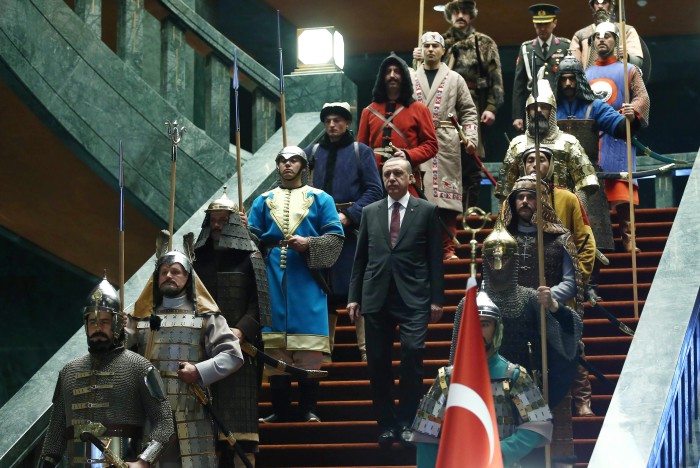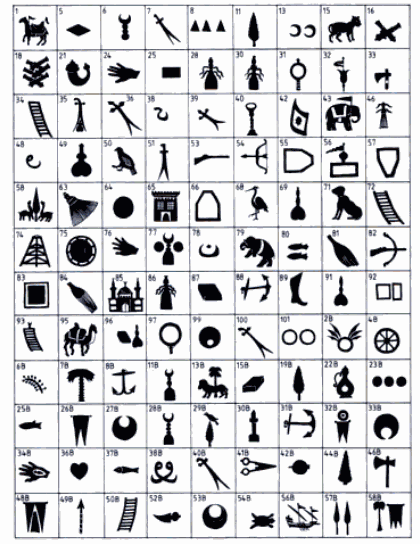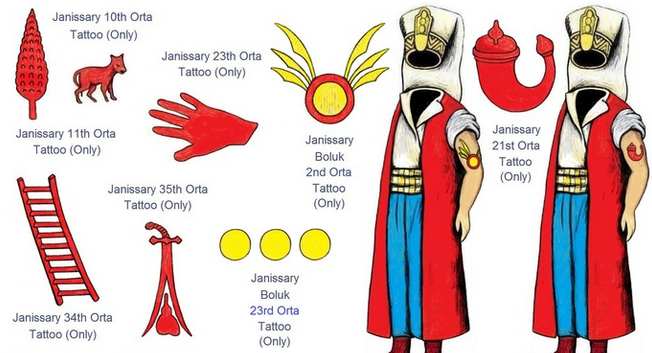On the Turkishness of Ink

Is a tattoo something modern, foreign and dangerous? According to Turkey’s current AKP-government it is. Seen in the light of history things might appear differently.
Palestine’s President Mahmmoud Abbas might have been slightly surprised when he was received by Turkish president Recep Tayyip Erdoğan in his new palace in Ankara in January this year. Instead of an expectable group of representative soldiers, 16 historically costumed officials lined Erdoğans way down the stairs.

This Turkish „costume parade“ caused a lot of mockery and derision on media and social media afterwards. The official explanation meanwhile was serious: Every one of the soldiers is supposed to represent another era of Turkish history – 16 soldiers for the 16 „Great Turkish Empires“. Back to history, back to tradition, back to the roots were the actual messages underlining this ceremony.
Another outcome of this political course caused an outcry last year: This time AKP was worrying about school kids’ appearances and quickly banned every kind of body modifications which were assumed as too modern. Students were not longer allowed to wear piercings, make-up, beards, dyed hair and tattoos at school. Additionally Turkey’s top religious body issued a fatwa that urges Muslims who have tattoos to repent if they are unable to erase them.
Tattoos? Yes, tattoos. That current president Erdoğan is not an ink supporter from the bottom of his heart became obvious already before. Last summer he visited the Turkish football national team and stumbled across young player Berk Yıldız’ tattoos when shaking his hand. The president’s reaction: “What are these tattoos? Why do you harm your body like that? Don’t be fooled by foreigners. God forbid, it could even give you skin cancer in the future.”
What Erdoğan did not take into account by then is that tattoos are not necessarily related to foreigners but have a long tradition in Turkey as well. In the Yezidi Kurdish community mainly women are decorated with „deq“ patterns and dots spread over their faces, hands and ankles for spiritual purposes. During the Armenian genocide many young women in nowadays Turkey were forced to convert and were lateron especially in their faces tattooed with circles or small crosses. Originally these symbols were supposed to provide protection, strenght or fertility, by then they represented the belonging to a Muslim husband.
[widgetkit id=18991]
Kurdish women wearing traditional tattoos (Images by Jodi Hilton)
But the Turkish ancestors also made other use of the ink art. The Ottoman elite troops of the Janissaries for example all recieved a tattoo before starting their military carrer. They wore the number and the symbol of their detachment on their right arm and on their right leg. These marks served several purposes: They symbolized full admission into the order, marked those entitled to salaries and rations, and identified soldiers that were killed in battle. And of course the tattoos indicated power once more: The recruited, usually former Christian boys from conquered territories obviously belonged to the military and the Sultan’s property after having their tattoo.

Symbols of Janissary detachments traditionally used as tattoos
Considering this it is hard to state tattoos as modern phenomenon that lacks any roots in Turkish culture, as dangerous foreign stuff that additionally causes cancer. It should be common knowledge of the Turkish government that seems to be so keen on glorious history that tattoos have been present in Anatolia for a long time. Besides this modern tattoo art is currently spreading further amongst young Turks – patterns are popular, as well as Atatürk’s signature and even the penguin symbolizing the Gezi protests. Berk Yıldız, the young football player, by the way refused to follow the President’s suggestion of removing his tattoos: „Everyone has a choice and I am happy as such“, Yıldız stated.

